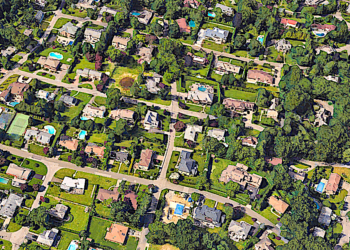John Nolon, distinguished professor of law emeritus at the Elisabeth Haub School of Law at Pace University, is widely seen as one of the most prominent thought leaders in land use law. The roots of this focus, which fueled a career that spanned decades, can be traced to his childhood on a ranch in Nebraska.
“There didn”™t seem to be too much confusion about the fact that we”™d take care of the land and use it and make a profit from it, but that we would always treat it with respect,” Nolon recalled.
This position on conservation ethics and appreciation for the land at a young age helped to inform Nolon”™s career trajectory. He created the Housing Action Counsel in 1974, which was made to facilitate the development of affordable housing, and he founded Elisabeth Haub School of Law”™s Land Use Law Center in 1993 and serves as co-counsel along with Professor Shelby Green.
“I didn”™t know it at the time, but I was settled into a long-term relationship with land use,” Nolon said.

Contributed photograph.
Nolon”™s contribution to land use law literature includes authoring more than 50 articles in the New York Law Journal and six books published by the Environmental Law Institute that include “Well Grounded” in 2001, which challenged the notion of local governments having little power in making sustainable development a reality, and 2021”™s “Choosing to Succeed,” which stressed the authority local governments wield in being able to create low-carbon land use environments to reduce emissions.
His efforts have been recognized over the years with accolades such as an Honorary Membership Award from the International City/County Management Association in 2014, and most recently in 2022 with the Founder”™s Award from the Land Use Law Center.
Since its formation, the Land Use Law Center has trained 2,500 local leaders through its comprehensive training course, and the leadership training program on affordable housing has resulted in hundreds of housing units being built, according to Nolon.
In today”™s landscape, Nolon viewed zoning and its continued role in creating racial inequity in housing as an area that requires addressing.
“It”™s an embarrassment,” Nolon said. “The good news, we think, is since zoning was part of the cause of racial segregation, it can be part of the solution.”
Currently, Nolon is engaged in research pertaining to climate change management and Climate Resilient Development (CRD), which he describes as a “global prescription for managing climate change.” In a February 2022 report, the United Nations”™ Intergovernmental Panel on Climate Change described CRD as “the most promising approach” toward the matter, suggesting that focus be put on both mitigation of climate change and adaptation.
“The real practical focus there is on continuing to work on mitigation of climate change by reducing fossil fuel use, but also increasingly on adapting to the inevitable changes that the climate change we”™ve already baked into our system is going to require,” Nolon said. “I realized that it was an imperative that as one of the premier law school centers in the nation on this topic that we had to put our shoulder to that wheel and see what we could come up.”
Though land use law has many challenges associated with it, Nolon notes that students in the Land Use Law Center are “oriented toward positivity,” and advises those pursuing a career in land use law to “be confident there is a solution to most problems if you just are persistent and think deeply enough,” adding that “we have the ability to come up with solutions to many, many problems because we have such talented students.”


















Excellent article for a superb human being, a great teacher of the law, a nationally known law professor and a progressive social activist.